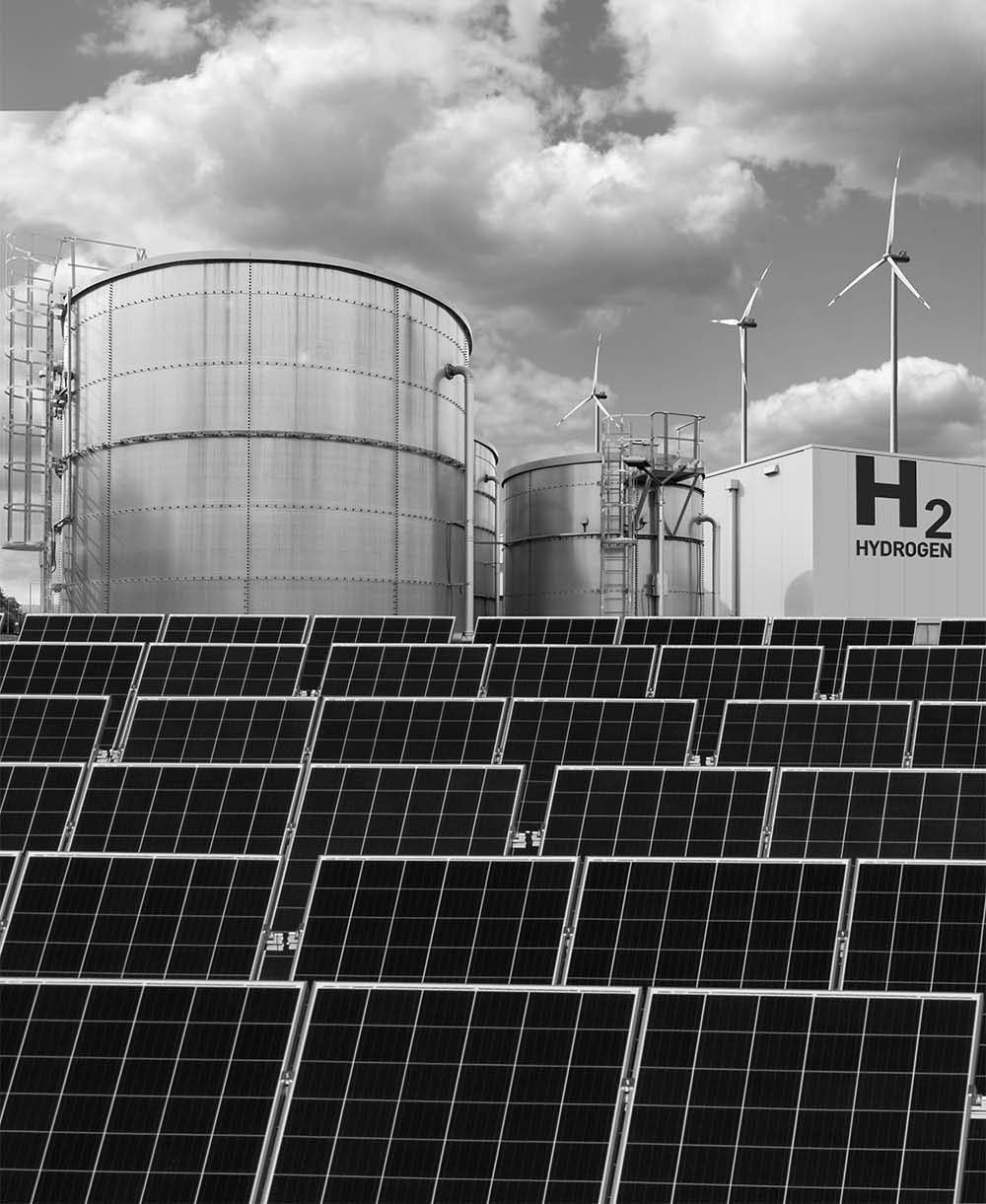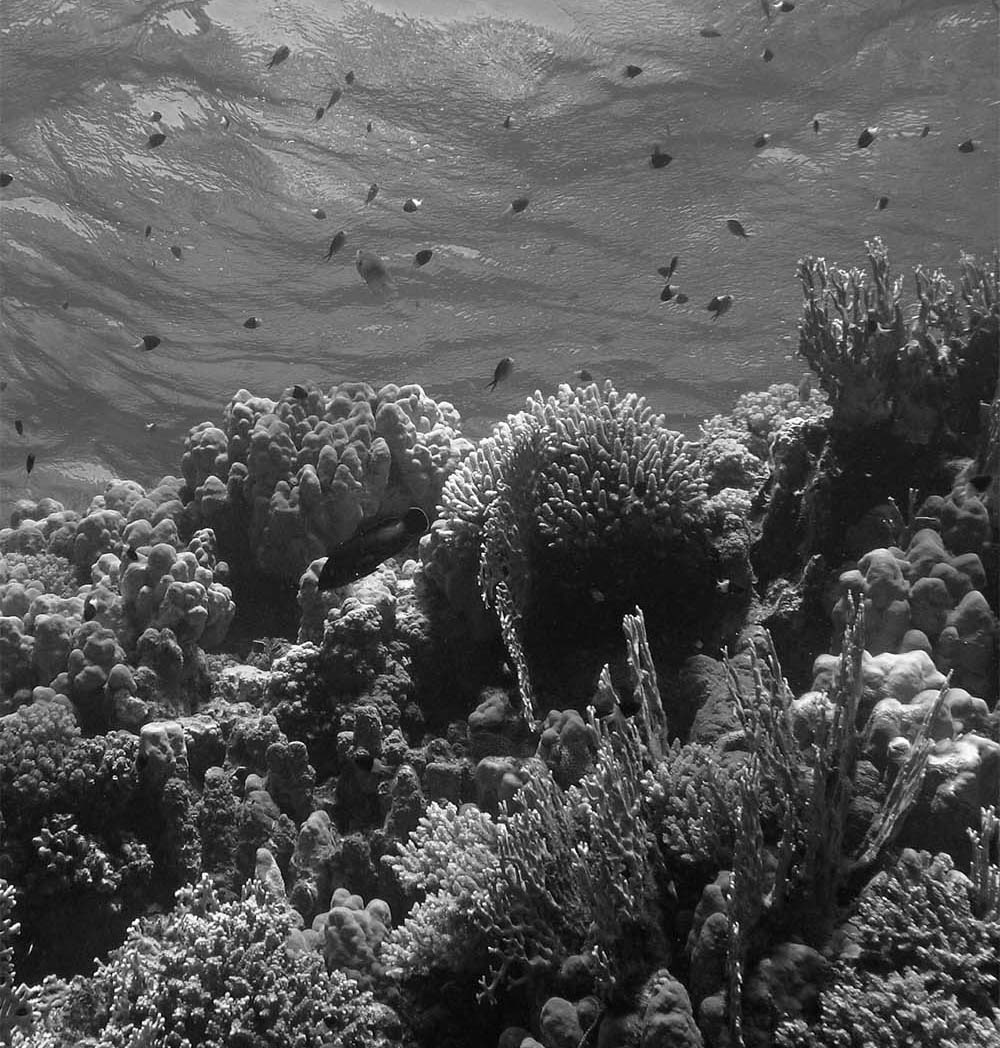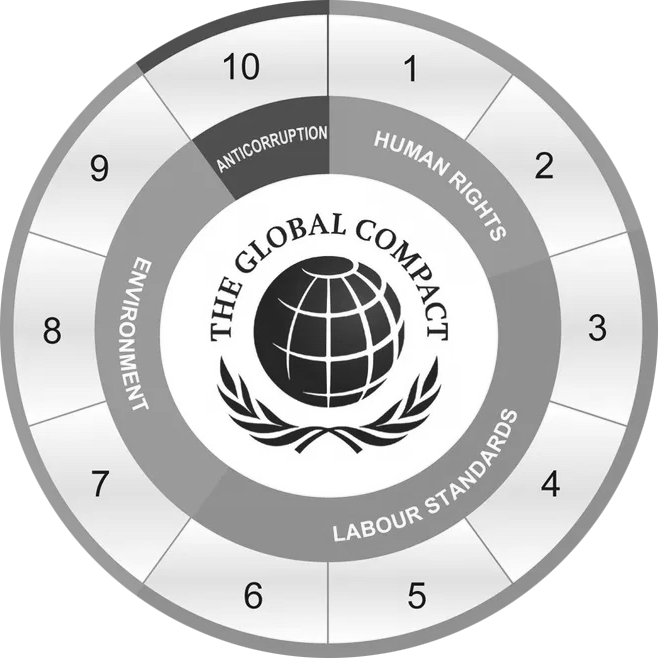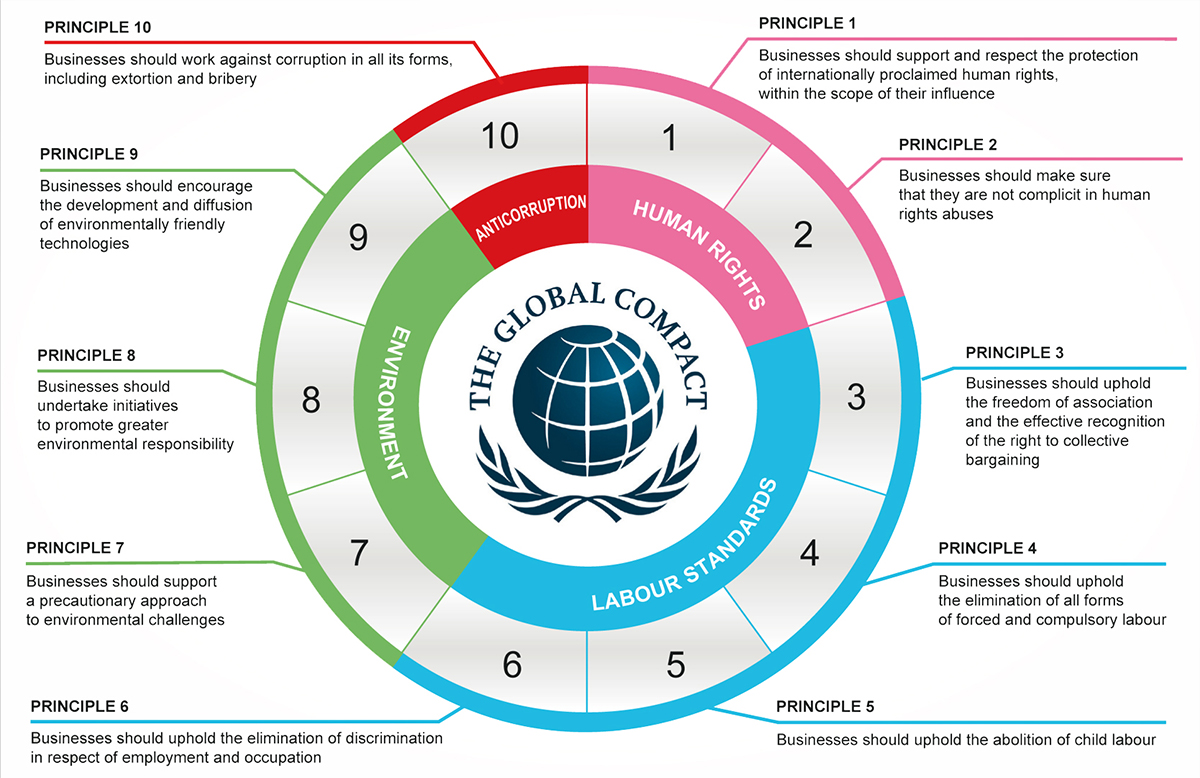With respect to the implementation of the EU Sustainable Finance Disclosure Regulation 2019/2088 (hereinafter ‘SFDR’), the promotion of environmental and social characteristics of the Asset Management product DoubleDividend Management B.V. is discussed below.

Summary
The Asset Management product of DoubleDividend Management B.V. (DoubleDividend) promotes both ecological and social characteristics, but does not have a sustainable investment objective.
In principle, for asset management clients DoubleDividend invests in the investment funds managed by DoubleDividend. The mutual funds managed by DoubleDividend promote both environmental and social characteristics.
Shares and fixed income securities issued by companies.
Ecological characteristics and social characteristics are promoted by not investing in companies that grossly violate the UN Global Compact Principles and certain exclusions. It also examines whether investee companies make a substantial effort on the climate and ecosystem challenge. More specifically, this involves promoting climate mitigation, pollution prevention and control, and the protection and restoration of biodiversity and ecosystems. For social characteristics, it more specifically promotes human rights, labour rights, good health and good financial health.
Fixed income securities issued by governments
E.Ecological features are promoted by only investing in governments that meet a certain minimum score on the Yale Environmental Performance Index (EPI index). The EPI index looks at 40 indicators including climate policy, biodiversity and air and water quality. More specifically, it promotes climate mitigation, the sustainable use and protection of water and marine resources, pollution prevention and control, and the protection and restoration of biodiversity and ecosystems. Social characteristics are promoted by basically not investing in governments that fall under hybrid and authoritarian regimes on the Economist’s democracy index. Countries must also meet a certain minimum score on the Corruption Perception Index.
Government bonds of countries subject to UN Security Council and/or European Union sanctions are excluded
DoubleDividend is a responsible asset manager and aims to bridge the gap between financial and social returns through its activities in the belief that an integral analysis of financial and sustainability aspects contributes positively to the risk-return profile of the investment portfolio.
DoubleDividend carries out ESG analysis for its investment funds. ESG stands for Environmental, Social and Governance. The ESG analysis includes a large number of indicators that map a company’s environmental and social characteristics. These include information on CO2 emissions, biodiversity, water use and recycling, waste flows and diversity (of the board) and, where relevant, remuneration policy and shareholder rights.
As a result of the ESG analysis, the investment funds managed by DoubleDividend invest in companies that play into opportunities, offer solutions and have a positive impact with their production process, products and/or services on one of the challenges identified by DoubleDividend: climate, ecosystems and welfare.

Governments in which investments are made must meet a certain minimum score on the Yale Environmental Performance Index (EPI index). In addition, in principle, no investments are made in governments that fall under hybrid and authoritarian regimes on the Economist’s democracy index. Countries are also assessed for corruption, which can lead to a certain country not being included in the universe. This is done by looking at Transparency International’s Corruption Perception Index and using a certain minimum score that must be met.
The ESG analysis is updated every year for each company with the most recent data and other details. This monitors whether the respective company in the investment portfolio meets the environmental and social characteristics. The company is continuously monitored for news reports. In case of a gross violation of, for example, the UN Global Compact Principles, a decision can be made to sell the position. Governments are also monitored every year on the relevant indices and in case of a (severe) decline on the relevant index(es), a decision can be made to sell the position. The exclusions list is updated at least quarterly, or if necessary e.g. due to implemented sanctions or a gross violation of the UN Global Compact Principles.
Under asset management, five standard risk profiles are offered. Due to the fact that ecological and social characteristics are promoted the same for all asset classes (equities, bonds and alternatives), therefore all risk profiles have a proportion of investments aligned with ecological and social characteristics of 98%. Other investments consists of the average liquidity position in an investment portfolio.
The ESG analysis uses the same definitions as in applicable laws and regulations. This allows DoubleDividend to measure whether the promoted environmental and social characteristics are achieved.
Bloomberg and companies’ annual and sustainability reports and websites are used as data sources for the ESG analysis. In addition, for fixed income securities issued by governments, the Yale Environmental Performance Index, the Economist’s Democracy Index and the Corruption Perception Index are used as data sources.

The main limitation of the data sources used is that certain data is not (yet) provided by the companies/governments.
DoubleDividend has a Stewardship Policy (Policy on Engaged Shareholding).
Once invested, DoubleDividend acts as an engaged shareholder and makes use of shareholder rights and, if necessary, calls on the management of a company to apply and improve their environmental, social or corporate governance policies.
Investment objective
This financial product promotes ecological or social characteristics but does not have a sustainable investment objective.
Ecological or social characteristics of the financial product
The asset management product of DoubleDividend Management B.V. (DoubleDividend) promotes both ecological and social characteristics.
In principle, DoubleDividend invests for its asset management clients in the investment funds managed by DoubleDividend. The investment funds managed by DoubleDividend promote both ecological and social characteristics.
Shares and fixed income securities issued by companies
Ecological characteristics are promoted by prohibiting investee companies from grossly violating the UN Global Compact Principles and certain exclusions. In addition, it is examined whether investee companies make a substantial effort on the climate and ecosystem challenge. More specifically, this promotes climate mitigation, pollution prevention and control, and the protection and restoration of biodiversity and ecosystems.
Social characteristics are promoted by prohibiting investee companies from grossly violating the UN Global Compact Principles and certain exclusions. More specifically, the social attributes: human rights, labour rights, good health and good financial health are promoted.
Fixed income securities issued by governments
Ecological features are promoted by requiring invested governments to meet a certain minimum score on the Yale Environmental Performance Index (EPI index). The EPI index is compiled annually by Yale University in collaboration with Columbia University. It looks at 40 indicators including climate policy, biodiversity and air and water quality. Based on these factors, a score is given and 180 different countries are ranked. More specifically, climate change mitigation, the sustainable use and protection of water and marine resources, pollution prevention and control, and the protection and restoration of biodiversity and ecosystems are promoted.
Social characteristics are promoted by basically not investing in governments that fall under hybrid and authoritarian regimes on the Economist’s democracy index. Countries are also assessed for corruption which may result in a particular country not being included in the universe. This is done by looking at Transparency International’s Corruption Perception Index and applying a certain minimum score that must be met.




Investment strategy
DoubleDividend is a responsible asset manager and aims, to bridge the gap between financial and social returns, convinced that an integral analysis of financial and sustainability aspects contributes positively to the risk-return profile of the investment portfolio. In principle, DoubleDividend invests for its asset management clients in the investment funds managed by DoubleDividend.
DoubleDividend carries out an ESG analysis for its investments in the investment funds. ESG stands for Environmental, Social and Governance. The ESG analysis includes a large number of indicators that map a company’s environmental and social characteristics. These may include information on CO2 emissions, biodiversity, water use and reuse, waste streams and diversity. In addition, companies may not grossly violate the UN Global Compact Principles or be on DoubleDividend’s exclusion list
DoubleDividend excludes the following companies:
- Companies involved in the production of cluster munitions, anti-personnel mines, biological and chemical weapons, product of nuclear weapons.
- Companies generating more than 5% turnover from gambling.
- Companies genarating more than 5% turnover from the exploitation of pornography.
- Companies generating more than 5% turnover from the production of tobacco.
As a result of the ESG analysis, the investment funds managed by DoubleDividend invest in companies that play into opportunities, offer solutions and have a positive impact with their production process, products and/or services on one of the challenges identified by DoubleDividend: climate, ecosystems and welfare. This ESG test (based on the three named challenges) uses sector-specific reports of (civil society) organizations, company information on sustainability in annual reports and websites and Bloomberg, among others. In addition, discussions are held with companies if further information and/or explanation is required.
Governments in which investments are made must meet a certain minimum score on the Yale Environmental Performance Index (EPI index). In addition, in principle, no investments are made in governments that fall under hybrid and authoritarian regimes on the Economist’s Democracy Index. Countries are also assessed for corruption, which can lead to a certain country not being included in the universe. For this, the Corruption Perception Index of Transparency International is taken into account and a certain minimum score is used that must be met. DoubleDividend excludes government bonds of countries subject to UN Security Council and/or European Union sanctions.

Share of investments
The product promotes E/S features, but will not make sustainable investments. Five standard risk profiles are offered under asset management. Asset allocation under the five standard risk profiles is as follows:
DEFENSIVE
| Minimum | Norm | Maximum | |
| Shares | 0% | 22% | 30% |
| Bonds | 55% | 73% | 100% |
| Alternatives | 0% | 5% | 15% |
| Cash | 0% | 0% | 45% |
NEUTRAL
| Minimum | Norm | Maximum | |
| Shares | 25% | 47% | 55% |
| Bonds | 25% | 45% | 70% |
| Alternatives | 5% | 8% | 25% |
| Cash | 0% | 0% | 45% |
VERY OFFENSIVE
| Minimum | Norm | Maximum | |
| Shares | 50% | 80% | 100% |
| Bonds | 0% | 10% | 35% |
| Alternatives | 0% | 10% | 30% |
| Cash | 0% | 0% | 50% |
MODESTLY DEFENSIVE
| Minimum | Norm | Maximum | |
| Shares | 10% | 33% | 40% |
| Obligaties | 30% | 61% | 90% |
| Alternatives | 0% | 6% | 20% |
| Cash | 0% | 0% | 60% |
OFFENSIVE
| Minimum | Norm | Maximum | |
| Shares | 40% | 65% | 80% |
| Bonds | 0% | 25% | 50% |
| Alternatives | 5% | 10% | 25% |
| Cash | 0% | 0% | 55% |

Since the way ecological and social characteristics are promoted are the same for all asset classes (equities, bonds and alternatives), the following distribution applies to all risk profiles.

#1 Aligned to E/S characteristics includes the investments of the financial product used to meet the environmental or social characteristics promoted by the financial product.
#2 Other includes the financial product’s other investments that are not aligned with the environmental or social characteristics and also do not qualify as sustainable investments.

Monitoring environmental or social characteristics
The ESG analysis is updated every year for each company with the latest data and other details. This processmonitors whether the respective company in the investment portfolio meets the ecological and social characteristics. The company is continuously monitored for news reports. In case of a gross violation of, for example, the UN Global Compact Principles, a decision can be made to sell the position.
Governments are also monitored every year on the relevant indices and a decision can be made to sell the position in case of a (sharp) fall on the relevant index(es).
The exclusions list is updated at least quarterly, or if necessary e.g. due to implemented sanctions or a gross violation of the UN Global Compact Principles.
Methodologies
The ESG analysis uses the same definitions as applicable in laws and regulations. This allows DoubleDividend to measure whether the promoted environmental and social characteristics are achieved.
Data sources and processing
Bloomberg and companies’ annual and sustainability reports and websites are used as data sources. Bloomberg data is automatically loaded into the ESG analysis of the respective company. This data is verified with public sources from the company. The data is then analysed and an impact analysis is done. No proprietary estimates are used, external data providers such as Bloomberg may use estimates.
Methodological and data limitations
The main limitation of the data sources used is that certain data is not (yet) given by companies. However, key data such as CO2 emissions, biodiversity, water use and reuse, waste streams, board diversity, remuneration policy and shareholder rights are reported by an increasing number of companies. This allows DD Equity Fund to determine whether promoted environmental and social characteristics are being achieved.

Due Diligence
DoubleDividend conducts an ESG analysis. ESG stands for Environmental, Social and Governance (ESG). The ESG analysis includes a large number of indicators that map a company’s environmental and social characteristics. These could include information on CO2 emissions, biodiversity, water use and recycling, waste streams, board diversity, remuneration policy and shareholder rights.
In addition, companies may not grossly violate the UN Global Compact Principles or be on the Fund Manager’s exclusion list.
DoubleDividend excludes the following companies:
- Companies involved in the production of cluster munitions, anti-personnel mines, biological and chemical weapons, product of nuclear weapons.
- Companies generating more than 5% – turnover from gambling.
- Companies generating more than 5% – turnover from the exploitation of pornography.
- Companies generating more than 5% – turnover from the production of tobacco
Governments invested in must meet a certain minimum score on the Yale Environmental Performance Index (EPI index). In addition, in principle, no investments are made in governments that fall under hybrid and authoritarian regimes on the Economist’s democracy index. Countries are also assessed for corruption, which can lead to a certain country not being included in the universe. For this, the Corruption Perception Index of Transparency International is taken into account and a certain minimum score is used that must be met. DoubleDividend excludes government bonds of countries subject to UN Security Council and/or European Union sanctions.
DoubleDividend has established compliance and risk procedures in order to monitor the implementation of the investment policy. The annual report of DoubleDividend and the investment funds managed by DoubleDividend are audited by an external auditor.
Engagement Policy
DoubleDividend has a Stewardship Policy (Policy on Engaged Shareholding).
For DoubleDividend, engaged shareholdership (engagement) is an important part of the investment process. For DD Equity Fund, engaged shareholdership means:
1) knowing what you are investing in
2) investing with conviction
3) feeling responsible for investments and
4) being accountable
After investing, DoubleDividend acts as an engaged shareholder and exercises shareholder rights and, if necessary, the management of a company is called to account for applying and improving their environmental, social or corporate governance policies.
In the case of entering into a dialogue with a company on environmental, social or governance issues, it is determined with whom to enter into the dialogue and the most desirable way to do so. This may vary, but often the first step is to discuss the concerns with the directors and/or supervisory directors or to write a letter outlining the concerns.
As the dialogue develops, it is determined what further steps, if any, are desirable, such as holding additional meetings with the directors and/or supervisory directors to discuss the areas of concern in particular, attending the general meeting and voicing concerns at that meeting, including voting against board proposals and intervening with other institutional investors and shareholders on specific issues. These further steps are aimed at preserving and enhancing value for clients and should promote sustainable long-term value creation at the listed companies invested in.
In carrying out its engagement activities, DoubleDividend cooperates with other shareholders where appropriate and at its discretion. This cooperation takes place in particular within Eumedion, the platform of institutional investors on corporate governance and sustainability, to which DoubleDividend is affiliated.
Want to know more about sustainability and Asset Management?



